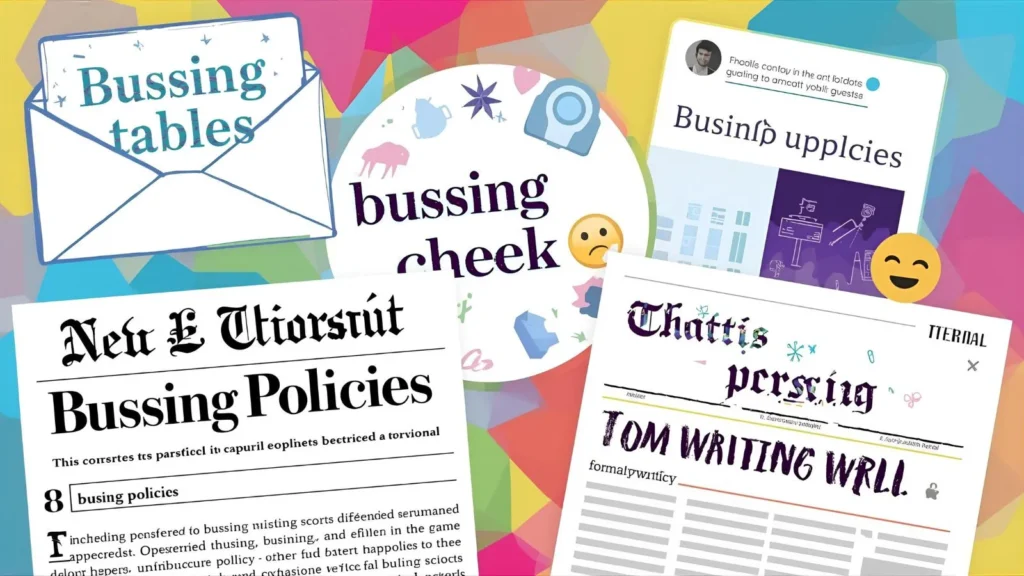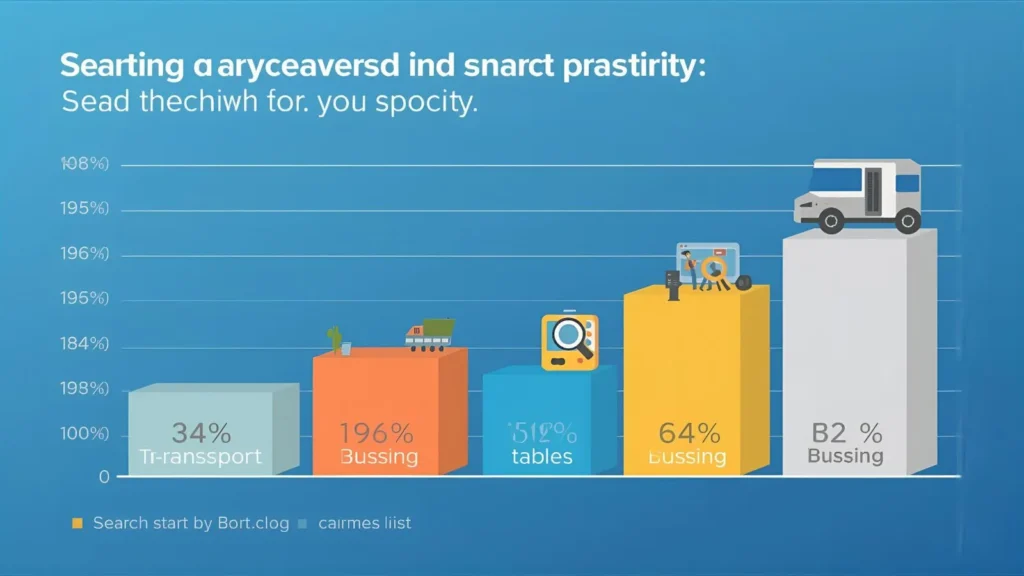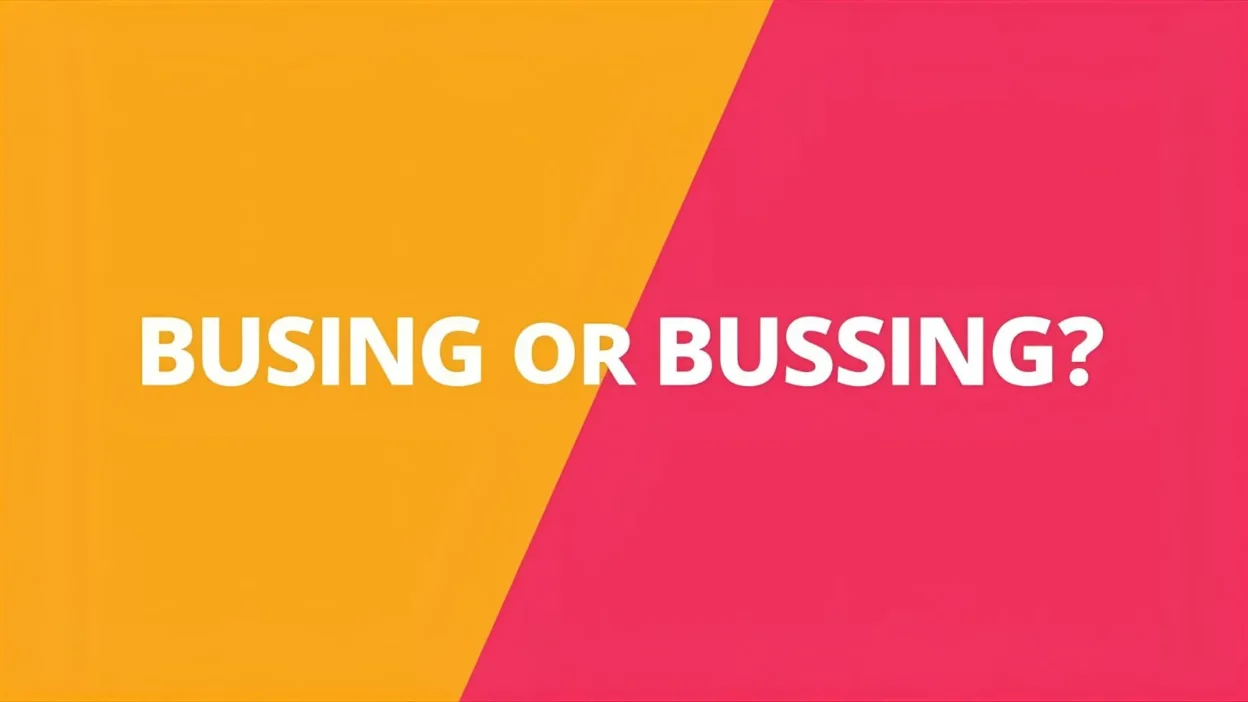If you’re a student, writer, or content creator who wants to use clear and correct English for your audience, even small spelling choices can be important.
Imagine this: you’re writing an important blog or email and suddenly get confused—“Busing” or “Bussing”?
It’s interesting how a small spelling can instantly influence your readers’ impression. In this article, we’ll investigate the difference and inspire you to impress your audience with the right choice.
Busing or Bussing – Quick Answer

- Busing → The preferred American spelling when referring to transportation by bus.
- Example: “School busing policies were debated in the 1970s.”
- Example: “School busing policies were debated in the 1970s.”
- Bussing → Can mean either an alternate spelling of busing or the act of giving a kiss.
- Example: “The waiter was bussing the tables.”
- Example: “They were bussing each other on the cheek.”
- Example: “The waiter was bussing the tables.”
So, use “busing” for transport and “bussing” for tables or kisses.
The Origin of Busing or Bussing

The confusion arises from how English handles words that end in a single consonant.
- Bus comes from “omnibus,” meaning “for everyone.”
- When adding “-ing,” some writers double the final consonant (bussing), while others do not (busing).
Historically, both spellings were used, but American English simplified it to busing for transport. “Bussing,” however, survived in hospitality (tables) and as slang for kissing.
British English vs American English Spelling

In spelling, British English often keeps the double consonant, while American English prefers to drop it unless stressed.
Examples
- US English: busing (transport), bussing (tables, kissing).
- UK English: bussing (both transport and tables are common).
Comparison Table
| Context | US Spelling | UK Spelling | Meaning |
| Transport | Busing | Bussing | Traveling by bus |
| Hospitality | Bussing | Bussing | Clearing tables |
| Affection | Bussing | Bussing | Giving a kiss |
Which Spelling Should You Use?
- US readers → Use busing for transport, bussing for tables/kissing.
- UK/Commonwealth → Bussing is accepted for both transport and tables.
- Global writing (SEO, articles, blogs) → Use busing when referring to bus transportation, since it is the most searched worldwide.
Common Mistakes with Busing or Bussing

- Using “bussing” for school transport in US English → Correct form: busing.
- Assuming bussing only means kissing → It also means clearing tables.
- Mixing up meanings → Busing = transport, bussing = tables/kisses.
- Not capitalizing in headlines → Always capitalize: Busing or Bussing.
Correct Example: The debate over school busing changed U.S. education.
Incorrect Example: School bussing policies divided the country.
Busing or Bussing in Everyday Examples

- Email: “The restaurant staff are responsible for bussing tables after guests leave.”
- News: “Court rulings on busing shaped racial integration in schools.”
- Social Media: “They were bussing on the cheek at the airport ❤️.”
- Formal Writing: “The policy of school busing was intended to reduce segregation.”
Busing or Bussing – Google Trends & Usage Data

- Busing (transport) → Dominates searches in the United States.
- Bussing (tables) → More common in hospitality industries worldwide.
- Bussing (kissing) → Popular in slang and informal online posts.
- Trend: Overall, busing is searched far more, especially in educational and political contexts.
Comparison Table of Keyword Variations
| Keyword | Common Usage | Popularity |
| Busing | Transport (US schools, politics) | Very High |
| Bussing | Tables (hospitality) | Medium |
| Bussing | Kissing (slang) | Medium-Low |
FAQs
1. Is it busing or bussing for school transport?
In American English, use busing.
2. Why do both spellings exist?
They come from different rules for doubling consonants in English.
3. Does bussing mean kissing?
Yes, “bussing” is also a less common word for kissing.
4. Which is more common worldwide?
“Busing” is more common in transport contexts, especially in the US.
5. Is bussing wrong?
No—it’s correct when talking about tables or kisses, and in British English for transport.
6. Which should I use in academic writing?
Use busing for transportation, especially if writing for an American audience.
7. Is there a difference in pronunciation?
No, both are pronounced the same.
Conclusion
The choice between busing and bussing depends on context and audience. In American English, busing is the standard spelling for transport, while bussing is reserved for hospitality or affection. In British English, bussing may be used in both cases. For most global and online writing, “busing” is the safer and more search-friendly option when referring to transportation.
Writers should be careful not to confuse the meanings. Use bussing when describing waiters clearing tables or someone giving a kiss, but switch to busing when discussing school policies or travel. By keeping context and audience in mind, you’ll avoid mistakes and communicate more clearly.

Alexander Wren is a talented writer at lingorae.com, known for his clever wit and engaging style.
A true master of puns, he crafts playful wordplay that entertains and inspires readers.




